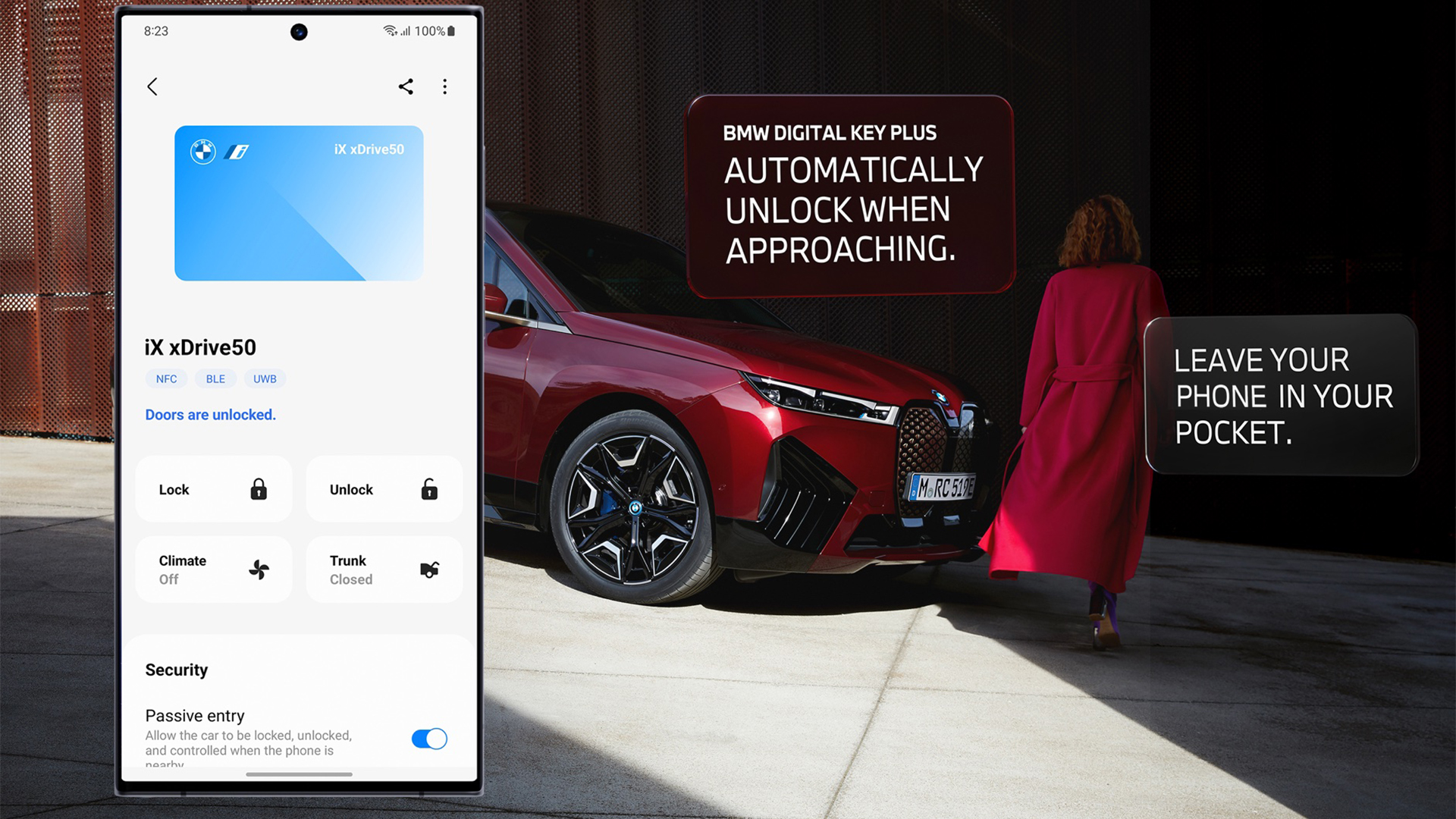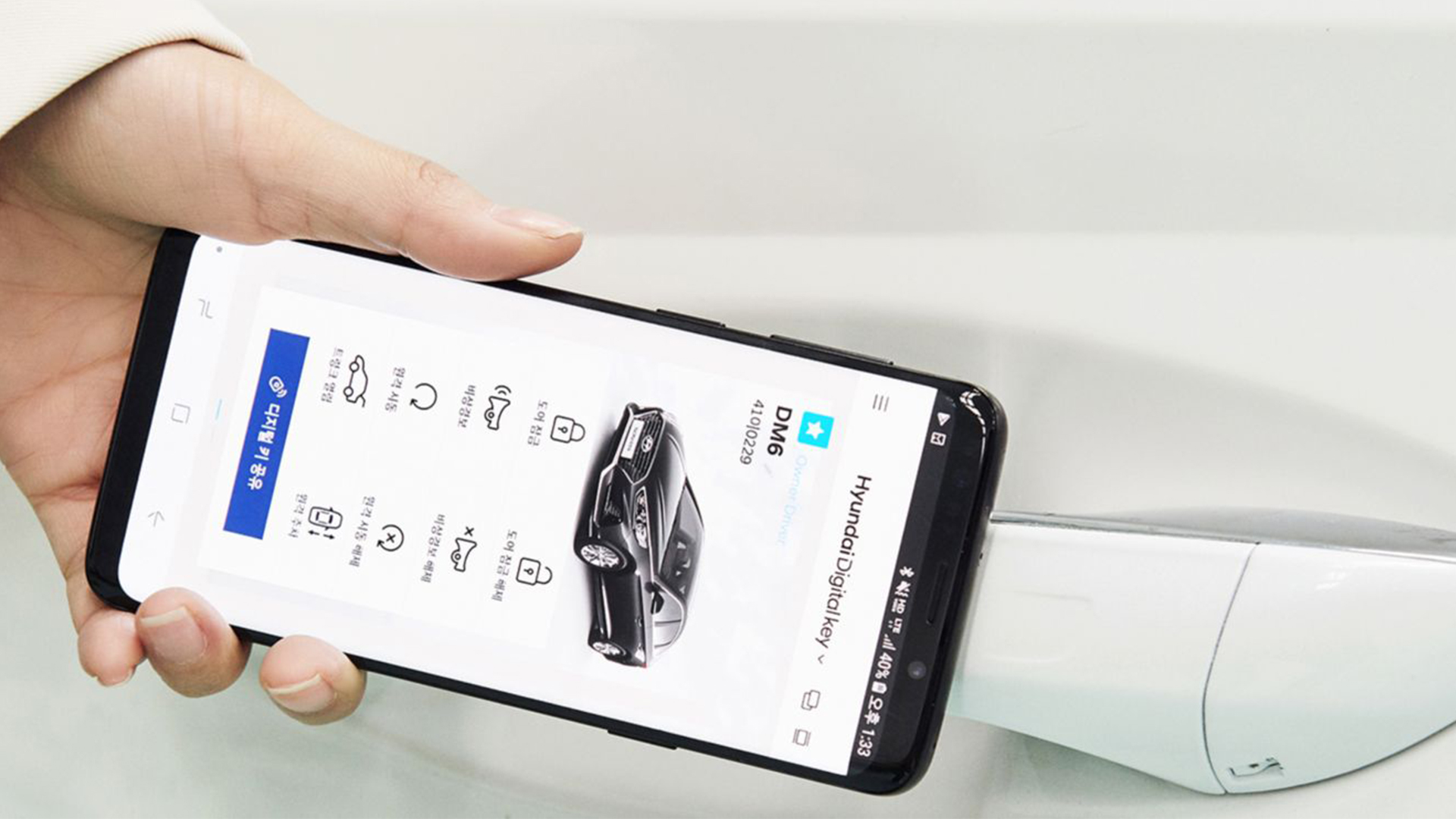Digital car keys could finally get safer and more popular soon – here's why
Apple-led consortium plans new standards for ultra-wideband

Keyless car theft is rampant in both Europe and the United States, but a new Apple-led consortium is planning to make digital car keys safer and more popular by creating some new industry standards for ultra-wideband connectivity (UWB).
As reported by The Verge, the new group is a combination of two powerful consortiums and brings together most of the major players in the smartphone and automotive worlds.
The aim of this new group (unfortunately called the Joint Ultra-wide band (UWB) MAC PHY Working Group, or JUMPWG) is to thrash out some improved standards and best practices for digital car keys. A current lack of best practices means that some automakers use NFC alone, while others pair it with low energy Bluetooth and ultra-wideband connectivity (UWB).
This has contributed to some pretty widespread security issues. UK vehicle recovery specialist Tracker recently stated that 94 per cent of all the vehicles it recovered in 2022 were stolen using relay technology. Car thefts in the USA also increased to over one million in 2022, up from 937,976 in 2021, according to Forbes, and you've likely heard about the nightmare that Kia and Hyundai are having with spiraling car theft numbers.
Many automakers – and smartphone companies – still believe a phone-based key is a convenient way forward, so this new consortium could soon see digital car key adoption become safer and easier to use. Spearheaded by Jinjing Jiang, a wireless systems engineer at Apple, the group brings together the Car Connectivity Consortium (CCC) and FiRa Consortium to discuss create the new standards.
The former is a well-established group of engineers from Apple, Samsung, Xiaomi, and thinkers from most major car companies, while the latter is a nonprofit organisation that supports UWB and includes companies such as Apple, Google, Cisco, Samsung, Qualcomm and more.
This group will apparently "ensure long-term interoperability and scalability of the advanced UWB technology developed for the CCC Digital Key, encouraging broader adoption of UWB technology for secure and accurate ranging for vehicle access," CCC president Alysia Johnson said in a statement, according to The Verge.
Get daily insight, inspiration and deals in your inbox
Sign up for breaking news, reviews, opinion, top tech deals, and more.
The idea is simple: get carmakers and technology providers around a table to develop safe and reliable digital keys for the future.
A safer standard?

There will be plenty of folk who are up in arms about digital car keys, citing the recent rise in keyless thefts as a reason to avoid it. But in fact, smartphone-based digital car keys have proven to be very difficult to hack in the past.
SlashGear reported that Tesla even offered monetary prizes to hackers in an attempt to expose flaws in Phone-as-key technology during a 'Pwn2Own' event back in 2019.
According to a CNBC report, a team of talented hackers managed to get into a Model 3's internal web browser, but nobody managed to crack the "Key Fobs or Phone-as-Key" categories, which had a strict ban on entries related to Key Fob relay or the kind of "rolljam" attacks we are increasingly seeing.
The bottom line is, both NFC and UWB technology is very difficult to intercept due to the close proximity the device needs to have in order to access and start the car.
Of course, there are issues surrounding smartphone theft and this resulting in easy access to registered vehicles for thieves, but the same can be said for the physical theft of both remote locking and analogue car keys.
You might also like

Leon has been navigating a world where automotive and tech collide for almost 20 years, reporting on everything from in-car entertainment to robotised manufacturing plants. Currently, EVs are the focus of his attentions, but give it a few years and it will be electric vertical take-off and landing craft. Outside of work hours, he can be found tinkering with distinctly analogue motorcycles, because electric motors are no replacement for an old Honda inline four.